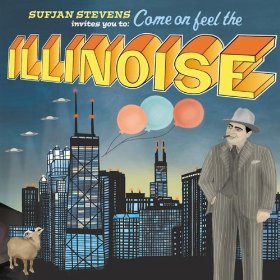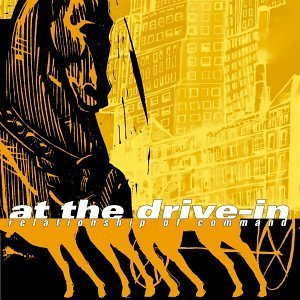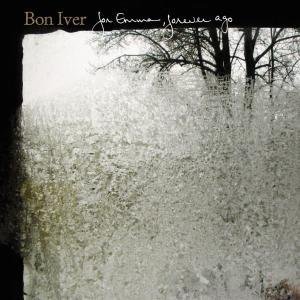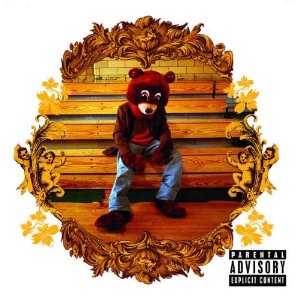We’re in the home stretch. After this, there’ll only be twenty albums left.
Think you have an idea what the #1 album is? Well, head on over to our Facebook page and take a guess. The first person to guess the winning album gets a $20 Amazon gift credit.
Now, on with the countdown!
30. Queens Of The Stone Age Rated R (2000)
Sandwiched between Queens Of The Stone Age’s two most highly praised albums, their self-titled debut and Songs For The Deaf, sophomore effort Rated R doesn’t quite get the credit it deserves. A logical bridge between the band’s first and third albums, this is the release where their identity really started to form while also nodding to Queens’ leader Josh Homme’s Desert Sessions releases.
This is the first release that bassist Nick Oliveri was heavily involved in and his vocal performances on slow burner “Auto Pilot” and punk rocker “Quick And To The Pointless” are standouts. Former Screaming Trees frontman Mark Lanegan takes the lead on arguably the best Screaming Trees songs never recorded by the Screaming Trees on “In The Fade” and none other then The Metal God himself, Rob Halford contributes back-up vocals to “Feel Good Hit Of The Summer”. But band leader/guitarist/vocalist Josh Homme and producer/instrumentalist Chris Goss are the real stars here as they shape the album into a near perfect mixtape of alternative rock, stoner/desert rock, punk rock and space rock rather than a sloppy hodge podge collection of songs.
The next album would top Rated R, but inferiority to one album doesn’t imply a lack of quality. All of Queens Of The Stone Age’s first three albums are essential. Nick
29. Coldplay Viva La Vida Or Death And All His Friends (2008)
Coldplay started the decade with their best album in Parachutes and finished it with their second best in Viva la Vida or Death And All His Friends. Viva la Vida represented a huge bounce back artistically for the band after the spotty X&Y and reigns as one of their most critically acclaimed albums. For a band hated on like few others, it was tough for even the haters to deny the artistic growth shown this time around. Of course, a lot of that had to do with the production of Brian Eno who pushed the band like no one else ever had to explore new musical territory, different instrumentation and topics rarely touched on in the past. For a band that was in danger of starting to sound stale, Coldplay successfully cemented their spot as a musical force of the 2000s with Viva la Vida. Mike A.
28. MGMT Oracular Spectacular (2008)
Released digitally in 2007 and hitting physical shelves in 2008, MGMT brought a level of self-awareness to their synth-driven indie pop, a quality generally lacking in so-called hipster culture. That’s not to say that MGMT are archetypical anti-hipsters; quite the opposite, in fact. Yet if “Time to Pretend” is a summation of the band’s philosophy on pop music and celebrity culture, they’re well aware of the absurdity and excess that comes with fame. In fact, they’re pretty blatantly lampooning it. But in a relatively quick time frame, MGMT became the “in” band, blowing up college radio, partying with Bill Murray and becoming darlings of the Pitchfork crowd. The “Kids” single and video sealed the deal, becoming something of an indie-mainsteam crossover hit (I’ve heard the song on AM radio in Iowa!). Frankly, MGMT deserved the accolades. Their synth-driven Oracular Spectacular is simply a fun, solid album that’s conventional enough for the wider audience, but interesting enough for those of us on the fringe. The band would rapidly abandon this approach for 2010’s Congratulations, however – and their audience abandoned MGMT in kind. Dr. Gonzo
 27. Sufjan Stevens Illinoise (2005)
27. Sufjan Stevens Illinoise (2005)
When you think of a banjo-playing folk singer, you don’t really think of serial killers, but somehow, Sufjan Stevens manages to combine the two of them on his fifth-studio album, Come On Feel the Illinoise (released in 2005). Of course, I’m referencing the ballad, “John Wayne Gacy Jr.” which chronicles the life of the murder known as the “clown killer”. Even stranger than the fact that Stevens would write a song about a serial killer is the fact that he makes him seem almost human in the song, particularly during the introspective closing lyrics (“And in my best behaviour, I am really just like him; look beneath the floor boards for the secrets I have hid”). But before you lump Stevens up as being some freaky serial killer enthusiast, realize that Gacy was merely on the list of subjects that relate to the State of Michigan. Illinoise is a concept album, and was supposed to be the second in line of a series of albums about each of the 50 US states. Stevens has since admitted the “50 States Project” was a publicity stunt, but Illinoise is a stellar album, nonetheless. There is the glorious anthemetic “Chicago”, the bittersweet ballad of a friend’s passing, “Casimir Pulaski Day”, and the delightfully upbeat “Jacksonville”. Under the surface, the album is rife with historical references and personal stories about Stevens’ life in Illinois as well as a few religions themes which reflect upon Stevens’ Christian faith. One of the most incredible things about this album, however, is that all twenty-two tracks on the album were arranged, written, recorded, engineered and produced by Stevens himself, and mostly done in his own apartment in Brooklyn. In fact, the majority of the instruments (which vary from the aforementioned banjo, to various horns, stringed instruments, and piano) were also played solely by Stevens. The disc really shows off the versatility of his musicianship: Illinoise goes from a pop album, to jazz, to country, to classical in a few songs. If it sounds all over the place on paper, don’t be afraid–the best thing to do is sit back, relax, pop in Illinoise and listen for yourself. Sufjan Stevens is truly a remarkable artist and this album is definite proof of that. Brittany
 26. At The Drive-In Relationship Of Command (2000)
26. At The Drive-In Relationship Of Command (2000)
The third and final album from El Paso’s At the Drive-In exploded onto the post-hardcore scene with a ferocity and relentlessness that forced you to take notice. The band’s first (and only) album on Grand Royal, Relationship of Command wasn’t so much a commercial success (it hit #116 on the Billboard album chart) as an artistic one in that it influenced countless bands to come and ended up on numerous best-of-the-decade lists. Influenced by bands such as Fugazi, Sunny Day Real Estate and Drive Like Jehu, ATDI perfected its in-your-face “screamo” style on this album. Rip-roaring songs like “One-Armed Scissor,” “Pattern Against User” and “Rolodex Propaganda” (featuring Iggy Pop) are fast and loud, while slow burners “Quarantined” and “Invalid Litter Dept.” show off the band’s melodic side. The band made energetic appearances on late night talk shows and toured heavily behind the album, but in 2001, lead shouters Cedric Bixler-Zavala and Omar Rodriguez-Lopez decided to split up the band and start The Mars Volta (with the others going on to form Sparta). Recently, ATDI announced it was reforming to play at Coachella in April, but there’s no word on whether a follow-up to Relationship of Command is in the offing. Koomdogg
25. Anthony Hamilton Comin’ From Where I’m From (2003)
“Sittin’ here, guess I didn’t make bail/Got time and a story to tell.”
From the second I heard those words, sung in Anthony Hamilton’s raspy croon, I was hooked. The soul singer had gone through several false starts in the music industry, so Comin’ From Where I’m From was a well-deserved and much worked for success. Contemporary R&B had already devolved into something that had no resemblance to the soul music we all grew up on, so Hamilton was the most refreshing of throwbacks, and unlike many of the artists that (somewhat incorrectly) get filed under the “neo-soul” category, he was versatile (going all-out rock & roll on “Chyna Black” and quoting Kenny Rogers on the hushed ballad “Lucille”) and he had a sense of humor (the bouncy “Cornbread, Fish & Collard Greens” is sure to put a smile on your face.) I first saw him perform at a label function several weeks before this album came out, and was hooked immediately. When Comin’ eventually broke through (going Platinum in large part to the hit single “Charlene”) I was as proud as if it had been my own album. Well-written, well-produced and well-performed, Comin’ From Where I’m From was THE soul album of the 2000s.-Big Money
 24. Bon Iver For Emma, Forever Ago (2008)
24. Bon Iver For Emma, Forever Ago (2008)
In an era where Bon Iver is so well-known that internet memes circulate poking fun at people who aren’t familiar, where Mr. Iver Justin Vernon sings on Kanye West jams, and where the collective has gotten massive end-of-year kudos for releasing a dense record of synth-and-sax-spackled throwback jumpoffs (or, to paraphrase our own Big Money, for being “an indie Christopher Cross”), it’s easy to forget where the artist came from. But Justin Vernon was an instant legend of musical folklore, taking a cue from acts like Damien Rice and Iron & Wine that sounded like they recorded records in a cabin in the woods, and one-upping them by setting up camp in a cabin in the woods, hunkering down for the winter, and pouring his folksy little heart out during the hibernation. The result was For Emma, Forever Ago, a record wounded and melancholy enough to count as sad-bastard music, but one that radiated warmth and beauty, Vernon’s abstract lyrics and left-field arrangements deftly navigating the treacherous, often-boring fatalism of indie folk. “Skinny Love”, wherein Vernon’s terrific voice leaps from fragile falsetto to bitter roar and back again, is the classic here, a transcendent meditation on the seething anger that often accompanies unbearable sadness. Drew
 23. Kanye West The College Dropout (2004)
23. Kanye West The College Dropout (2004)
As frustrating as it can be to like Kanye himself at times, it’s hard not to love not only his talent but his ambition. Oh, there’s also his influence. For better or worse, look at the hip-hop landscape. Artists ranging from Kid Cudi to Drake owe a very large debt of gratitude to Kanye West, and this album in particular. In an era when hip-hop “realness” was determined largely by a body count, ‘Ye came out and proved that you could sell 50 Cent-type numbers with Talib Kweli-like soul. Kweli himself is one of many guests who shine on The College Dropout. Years of producing hits meant that the Louis Vuitton Don had a lengthy list of favors to call in. While most of them put in great work, the star of the show remains the artist whose name is on the record.
No, Kanye’s not the best rapper. Yes, he might have relied on that chipmunk sample trick a few too many times. What puts The College Dropout over is feeling. It’s easily one of the most soulful hip-hop albums ever recorded, and even though I still love Kanye and he’s made huge strides both as an MC and a technical innovator, there’s a part of me that wishes he’d make another album just like this-12 minute autobiographical closing track and all. Big Money
22. John Mayer Heavier Things (2003)
I have been a fan of Mayer’s since the first moment I heard his voice in 2001, so I remember quite vividly waiting for this follow-up album to be released in 2003. I first heard lead single “Bigger Than My Body” and recall being a bit surprised: what was with this new, polished sound? He had replaced the simplistic, guy-singing-with-an-acoustic-
21. Muse Black Holes & Revelations 2006
Black Holes and Revelations, released in 2006, is probably (sadly) what many people think of when they think of Muse. Not that this is necessarily a bad thing, just that their older albums (like Showbiz) are generally unknown and under the radar. However, this album produced singles which launched Muse’s career in America. “Starlight,” “Supermassive Black Hole,” and especially “Knights of Cydonia” are the singles that helped the album reach triple platinum. “Map of the Problematique” and “Invincible” joined the singles in the UK.
Furthermore, the album set up two sold out shows at Wembley Stadium and later the release H.A.A.R.P., the live CD/DVD of the show.
Pertaining to the lyrics on the album, conspiracy theories and political prods make up the lyrics that aren’t about love and self reflection. Cassandra



3 comments
KBOX says:
Feb 17, 2012
I will never understand all the fawning over Muse. Without Radiohead or Rush, it’s certifiable that Muse would never exist. I’ve got all the albums from Showbiz onward but, after some quick listens the couple of weeks after their released, these albums are back on my shelf collecting dust…
Greg says:
Feb 17, 2012
I don’t think they’ve ever made a definitive album, but I’ve at least liked everything Muse has done from “Origin of Symmetry” onward. Yeah, they’re not exactly discreet about their influences (Radiohead, Jeff Buckley, Queen, Prince), but they’re good at what they do.
Angela says:
Feb 17, 2012
Every artist’s influences show at some point. Without the artists that influenced Radiohead, they wouldn’t exist, either. Most bands wouldn’t if the people that got them going hadn’t picked up an instrument. Not to mention, I think they’ve moved far away from the Radiohead influence as their career’s gone on, and yes, there’s a bit of Rush-style influence in their music, but it’s not exactly a replica, I don’t think. And while I think ‘Absolution’, or perhaps even ‘Origin of Symmetry’, is about as close to “definitive” as one gets so far, they could still come out with an album down the line that would easily get that title, too.
Meh. To each their own, though, of course. Anywho, I’m happy to see ‘Black Holes’ in here, too, and ‘Viva La Vida’ as well. I love Coldplay’s music in general, but that album is definitely my favorite of their work thus far.